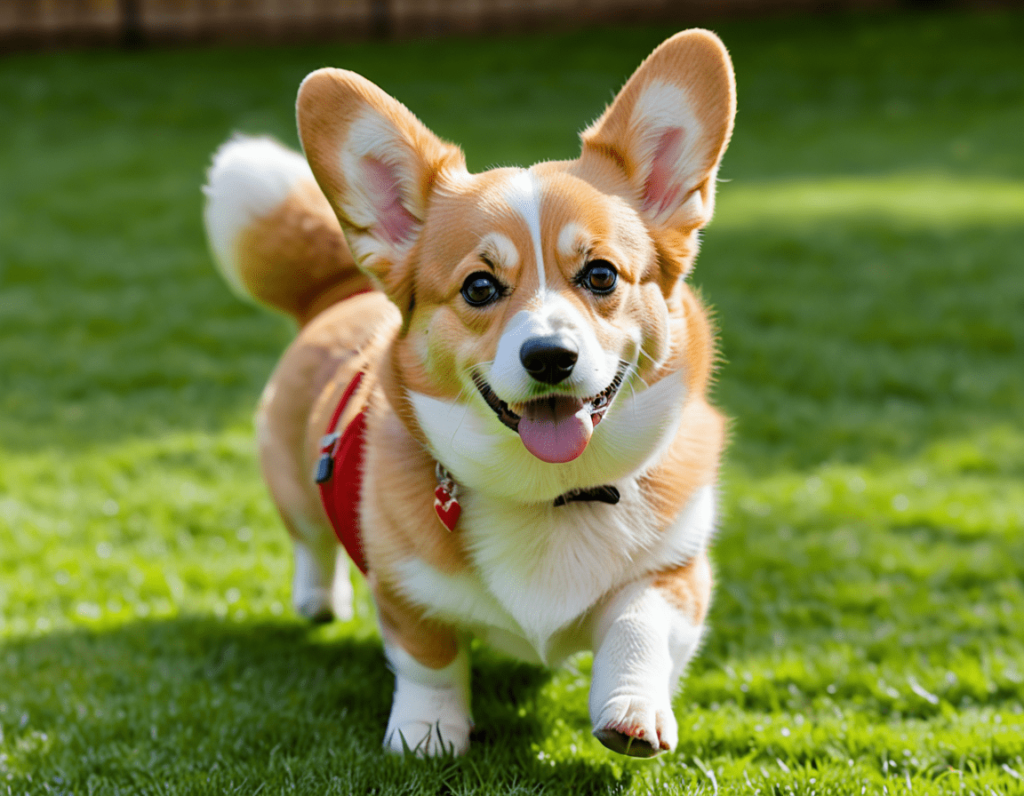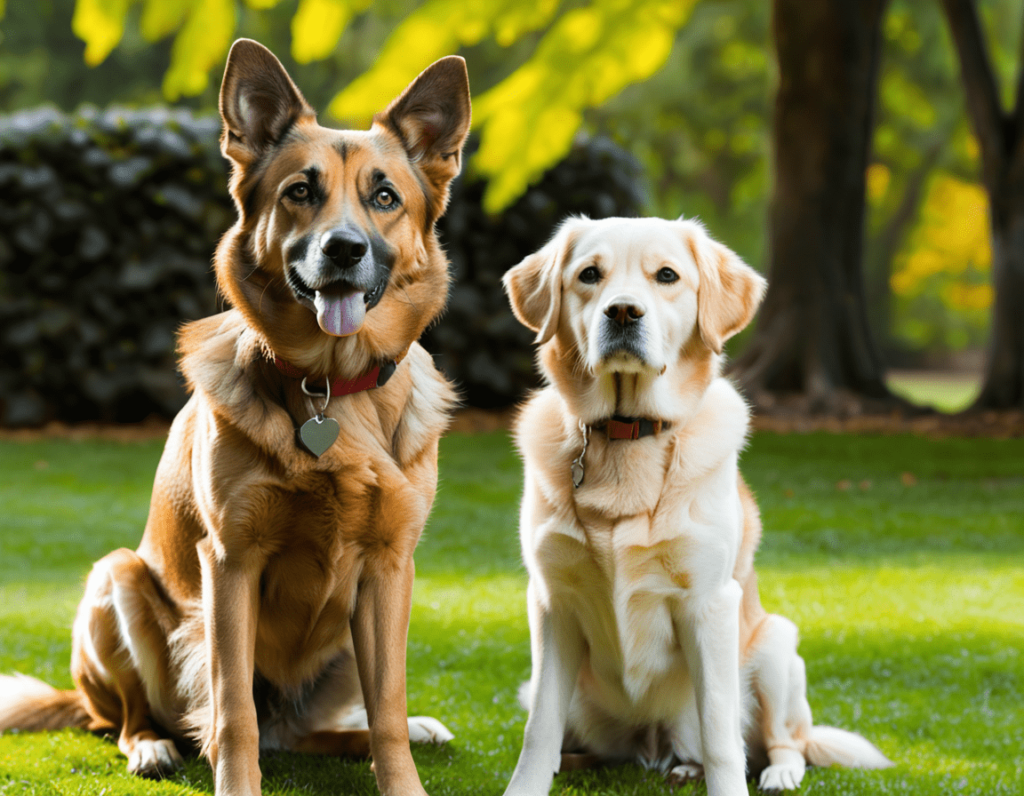
When it comes to choosing a furry friend, the debate between guard dogs and companion dogs can feel a bit like deciding between a sturdy umbrella and a fluffy cloud—both have their perks, but they serve very different purposes! Whether you’re looking for protection or a snuggle buddy, understanding the key differences between guard dogs and companion dogs will help you make the best choice for your lifestyle. So let’s dive in and explore the characteristics, training, and benefits of each type of dog.
What are guard dogs?
Guard dogs are like the superheroes of the canine world. They are bred and trained specifically to protect property, people, and livestock. These dogs take their jobs seriously, often patrolling their territory and barking at anything that seems even slightly suspicious—like that mailman who just keeps showing up every day!
Characteristics of Guard Dogs
- Protective Instincts: Guard dogs have a strong protective instinct, making them naturally wary of strangers. They can be territorial and are often very alert.
- Loyalty: These dogs are incredibly loyal to their owners. Once they bond with you, they’ll guard you like a knight protecting their castle.
- Intelligence: Guard dogs are typically smart and trainable, allowing them to learn complex commands and tasks. They’re the ones in the dog park who can perform a flawless “stay” while other dogs are busy chasing their tails.
Popular Guard Dog Breeds
- German Shepherds: Known for their intelligence and loyalty, they’re often used in police and military roles.
- Rottweilers: Strong and confident, Rottweilers make excellent protectors and family dogs.
- Doberman Pinschers: These sleek dogs are known for their agility and alertness, making them formidable guard dogs.
What are Companion dogs?
On the other hand, companion dogs are the friendly sidekicks of the dog world. They are bred primarily for companionship and love, providing comfort and joy to their owners. If guard dogs are the knights, companion dogs are the jesters—here to entertain and bring smiles!
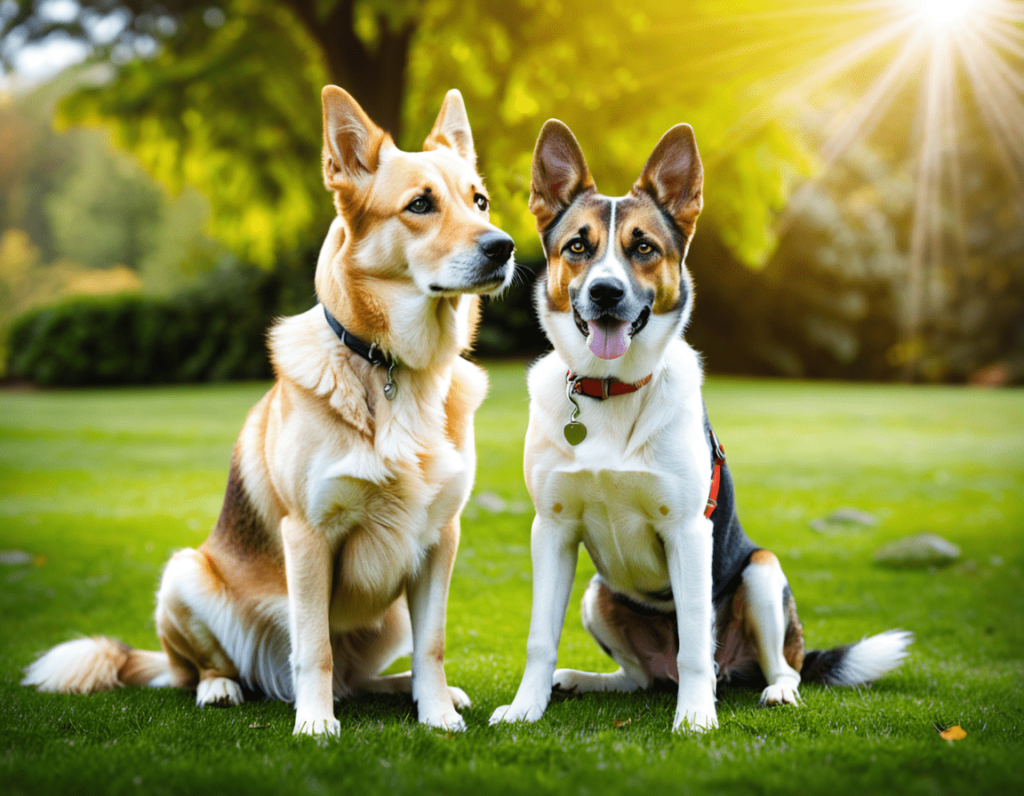
Characteristics of Companion Dogs
- Affectionate Nature: Companion dogs thrive on love and attention. They’re the ones snuggling on your lap while you binge-watch your favorite shows.
- Gentle Temperament: These dogs are typically friendly and social, making them great pets for families and individuals alike.
- Playful Spirit: Companion dogs love to play and engage in fun activities. Whether it’s chasing after a ball or rolling around in the grass, they’ll keep you entertained!
Popular Companion Dog Breeds
- Cavalier King Charles Spaniels: Sweet and gentle, these dogs are known for their affectionate personalities.
- Bichon Frises: With their curly coats and playful nature, Bichons are like little clouds of happiness!
- Pugs: Known for their charming personalities and adorable wrinkled faces, pugs are all about love and laughter.
Key Differences Between Guard Dogs and Companion Dogs
Feature
Guard Dogs
Companion Dogs
Purpose
Protection and guarding
Companionship and emotional support
Training
Specialized training for protection
Basic obedience and socialization
Temperament
Protective, loyal, and sometimes aloof
Friendly, affectionate, and playful
Social Interaction
Wary of strangers; protective
Welcoming and social with everyone
Exercise Needs
High energy and physical exercise required
Varies by breed, but generally enjoys playtime
Making the Right Choice
So, how do you choose between a guard dog and a companion dog? It ultimately depends on your lifestyle and needs. If you’re looking for a dog to protect your home and family, a guard dog may be the way to go. However, if you’re after a cuddle buddy to brighten your days and share your couch with, a companion dog will fit right in.
Factors to Consider
- Living Situation: Do you live in a busy area where safety is a concern? A guard dog might be more suitable. If you have a cosy home and love snuggles, a companion dog could be your best friend.
- Time Commitment: Guard dogs may require more training and socialisation, while companion dogs might need less intense training but still crave attention and playtime.
- Family Dynamics: If you have children or other pets, consider how a guard dog’s protective nature might affect interactions. Companion dogs often adapt well to family life.
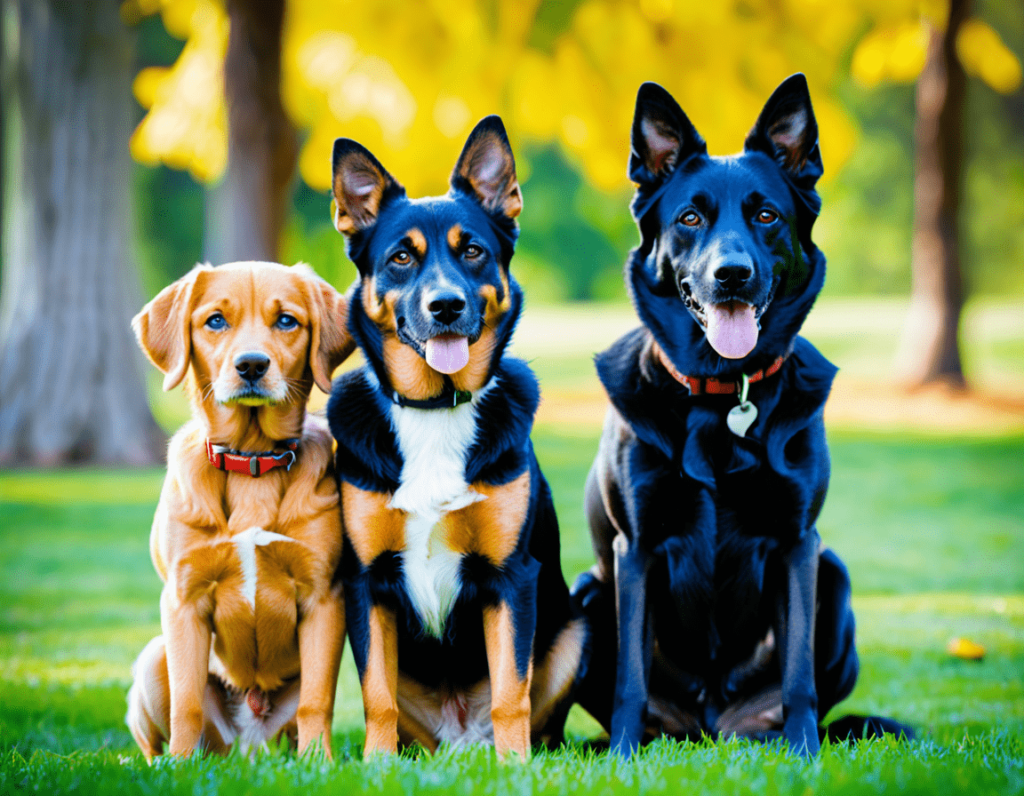
FAQs About Guard Dogs vs. Companion Dogs
1. Can a dog be both a guard dog and a companion dog?
Answer: Yes! Many breeds can serve as both guard dogs and companion dogs. A well-trained guard dog can be protective yet affectionate, making them a loyal family member while also keeping a watchful eye on the home front. It’s all about the right training and socialisation.
2. What training do guard dogs require?
Answer: Guard dogs need specialised training that focuses on obedience, protection, and socialization. They should learn commands like “stay,” “come,” and “leave it,” along with specific protective behaviors. This training is crucial to ensure they respond appropriately in various situations and can differentiate between a friend and a foe.
3. Are companion dogs easy to train?
Answer: Companion dogs generally respond well to training, but the ease of training can vary by breed. Some breeds, like poodles and golden retrievers, are known for their intelligence and eagerness to please, making training a breeze. Others may require more patience and consistency. Remember, every dog is unique!
4. How do I know if a guard dog is the right choice for me?
Answer: Consider your lifestyle, home environment, and comfort level with training. If you live in a high-crime area or need additional security, a guard dog might be a good fit. If you prefer a cuddly companion who loves to snuggle, a companion dog would be more suitable.
5. What should I look for in a companion dog?
Answer: Look for a breed that matches your activity level, living situation, and family dynamics. If you have kids, consider breeds known for their gentle and playful nature. If you live alone and want a small, low-maintenance dog, a compact breed like a Chihuahua or a Bichon Frise might be ideal.
6. Can I adopt a mixed breed as a guard or companion dog?
Answer: Absolutely! Mixed-breed dogs can make wonderful companions and effective guard dogs. Many rescue organisations have dogs with the characteristics you’re looking for. Just remember that the temperament and behaviour of mixed breeds can be more unpredictable, so it’s important to assess their individual personalities.
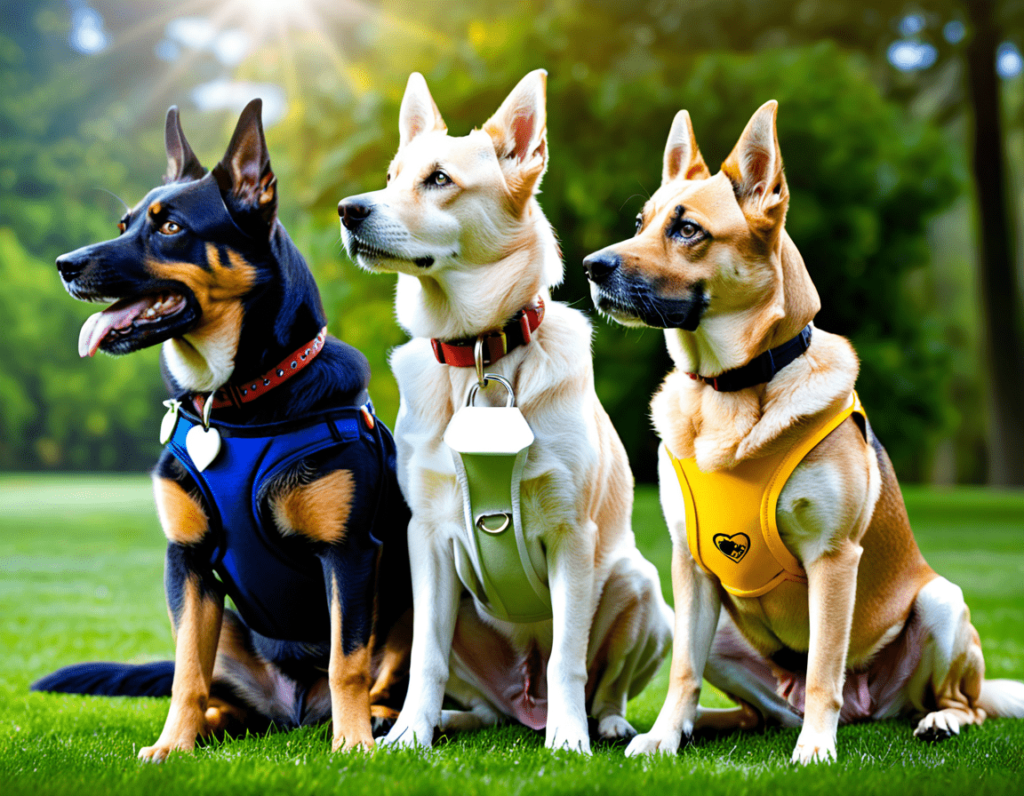
7. Do guard dogs require more exercise than companion dogs?
Answer: Guard dogs often require more exercise, as they need to burn off energy and maintain their physical health for their protective duties. However, many companion dogs also need regular exercise to stay healthy and happy, so be prepared to provide playtime and walks for either choice!
8. How do I socialise my guard dog?
Answer: Socialising a guard dog is essential for ensuring they don’t become overly aggressive. Expose them to different environments, people, and other pets from a young age. Positive reinforcement and obedience training classes can also help them learn to interact appropriately with others.
9. What if my guard dog becomes overly aggressive?
Answer: If your guard dog displays overly aggressive behaviour, it’s important to consult a professional dog trainer or behaviorist. They can help assess the situation and develop a training plan to modify the dog’s behaviour while ensuring the safety of everyone involved.
10. Are there any legal considerations for owning a guard dog?
Answer: Yes, it’s important to check local laws and regulations regarding guard dogs. Some areas have breed restrictions or require specific training for protection dogs. Always ensure you are compliant with local laws to avoid any issues.
Conclusion
Choosing between a guard dog and a companion dog is not just about the breed but also about your lifestyle and what you’re looking for in a furry friend. Both types of dogs can offer love, loyalty, and joy in their own unique ways. Whether you decide to go for a watchful protector or a cuddly sidekick, remember that training, socialization, and lots of love are key to building a strong bond with your new best friend.
So, which will it be? A valiant guardian ready to defend against all threats (even the vacuum cleaner) or a delightful companion who knows just how to brighten your day? Whichever you choose, your home will surely be filled with laughter, love, and the occasional tail wag! 🐾❤️

